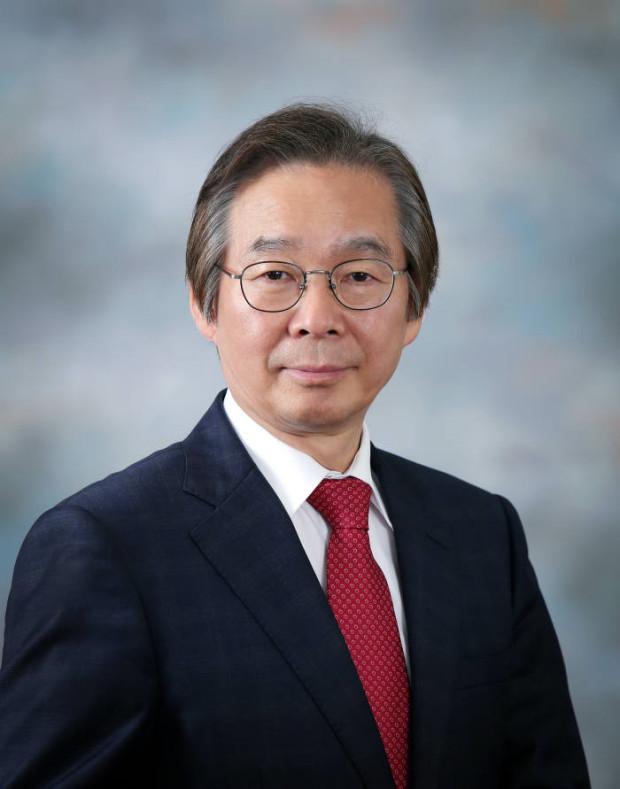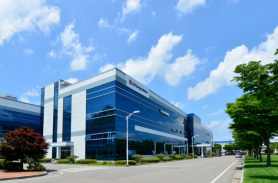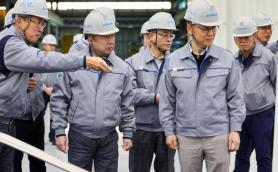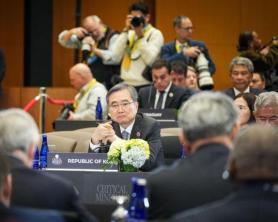South Korea's $100 Billion AI Bet: A Risky Gamble?

The New York Times recently likened data centers to thermometers of the tech industry's health and symbols of the AI bubble. This duality highlights the contradictions of the AI era.
Building a data center costs billions, requiring GPUs, cooling technology, power grids, and stable sites. Despite this, companies like Google, Microsoft, and Amazon are increasing investments. Countries like Japan and Singapore are also competing to attract these centers. For investors, data centers are both indicators of the AI boom and potential bubbles.
Amid this, South Korea's new government has announced a national strategy to become a top-three AI power, committing to secure 50,000 GPUs and invest 100 trillion won. This unprecedented move is not just political rhetoric but a significant resource allocation. The question is whether this will propel South Korea to new heights or lead to a bubble collapse.
The government's bold focus on AI stems from three main reasons. First, traditional growth engines like semiconductors and automobiles no longer drive double-digit growth. With aging and low growth, AI appears as a key future growth candidate. Second, there's a sense of urgency in industrial competitiveness. The U.S. and China have made AI central to national security and dominance. The U.S. is reorganizing semiconductor supply chains, drawing South Korea in, while China is shifting its strategy to AI. South Korea fears becoming a subordinate state if it hesitates. Third, the Lee Jae-myung administration, emerging post-impeachment, needed a clear vision to unify society and drive governance. The 'AI powerhouse' slogan addresses both international tech competition and domestic growth challenges.
This bold all-in strategy presents opportunities. It positions South Korea at the forefront of global AI competition. Infrastructure like GPUs and data centers are hard for latecomers to match. Early investment could recreate the semiconductor success. AI could revolutionize productivity in healthcare, administration, finance, manufacturing, and education, benefiting citizens. If small and medium enterprises can access national infrastructure affordably, they could leap forward, reducing reliance on large corporations.
However, there are shadows. The sustainability of the 100 trillion won investment is questionable given South Korea's fiscal reality, with rising welfare costs and declining tax revenue. AI investment could become a political target, especially if a new administration takes over. The public-private partnership's uncertainty is another concern. Major companies like Samsung and SK are key to the AI strategy, but cooperation is challenging amid calls for chaebol reform. A special social consensus is needed for unified public-private efforts in AI.
Energy is another issue. Data centers require stable power, but the government is hinting at phasing out nuclear energy, focusing on solar and wind. The gap between ideal goals and real demand is vast. Relying solely on renewables without transitional solutions is risky.
External risks also loom. The U.S. seeks to control GPU and semiconductor supply chains through alliances, while China remains South Korea's largest trade partner. Leaning too much toward one side could lead to diplomatic burdens. The spread of AI regulations in Europe could pose new barriers for South Korean companies.
In this context, a meeting on Sept. 22 in New York marked a turning point. President Lee Jae-myung met with Larry Fink, chairman of BlackRock, the world's largest asset manager. They discussed various cooperation plans, including AI and energy transition.
BlackRock, managing over $10 trillion in assets, is a major player in global finance, focusing on sustainability and risk management. It is a significant investor in South Korea, holding stakes in companies like Samsung and Hyundai. The meeting suggests that South Korea's AI strategy could expand beyond domestic projects to global initiatives connected with international capital. BlackRock's risk management philosophy could help South Korea's all-in strategy gain international trust.
However, challenges remain. The progressive Lee administration favors a big government approach, which could conflict with AI investment. Policy reversals are possible if political situations change. An AI fund involving private matching, policy finance, and pension funds is needed for continuity. The government plans to create a large national growth fund for high-tech industries.
Relations with large corporations are also tricky. Progressive governments traditionally emphasize chaebol reform, but AI requires corporate participation. A political agreement for a public-private alliance in AI is essential. Energy policy must also be adjusted realistically. While expanding renewables is right, data centers need 24/7 stable power. Without a mix of traditional energy sources, the AI all-in could increase bubble risks.
Foreign relations are another test. If South Korea appears aligned with the U.S. in AI, economic conflicts with China are inevitable. Cooperation with Japan should be framed as a global public good, and influence in ASEAN, India, and the Middle East should be expanded. The connection with BlackRock could be a practical foundation for this international expansion strategy.
South Korea's AI all-in strategy is like a high-speed elevator for the country's future. Success could write a new growth story, but failure could lead to a significant fall. Everything depends on South Korea's approach. Securing fiscal sustainability, building public-private trust, achieving realistic energy transitions, and maintaining balance and expansion in diplomacy are crucial. As the BlackRock meeting showed, partnering with global capital and accumulating small successes could turn South Korea's all-in into a platform for new growth, not a risky gamble.
BlackRock's Four Key Points in South Korea
- AI and digital transformation potential: South Korea's AI strategy and corporate investments in GPUs and digital infrastructure are future growth areas for global capital.
- Accelerated energy transition: Expanding renewables and a hydrogen-nuclear strategy align with BlackRock's ESG and green infrastructure investment philosophy. South Korea has the opportunity to grow as a Northeast Asian energy hub.
- Innovative corporate ecosystem: Global competitive 'national champion companies' like Samsung, SK, Hyundai, and POSCO offer stable, long-term returns through partnerships with BlackRock.
- Institutionalization of public-private cooperation: Potential for formalized collaboration between government and corporations.
- Former Deputy Editor of JoongAng Ilbo's Economic Department and Tokyo Correspondent
- Former Visiting Professor at Seoul National University and Hanyang University
- Former President of Gyeonggi Science and Technology Promotion Agency
- Current Visiting Professor at Gachon University and Hoseo University
- Current Editorial Director at Aju Business Daily
* This article, published by Aju Business Daily, was translated by AI and edited by AJP.
Copyright ⓒ Aju Press All rights reserved.




